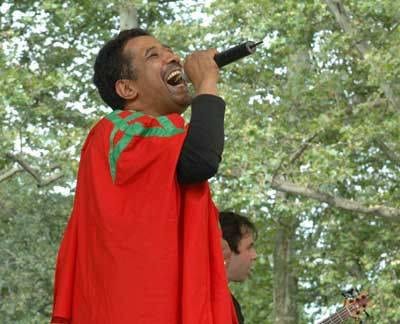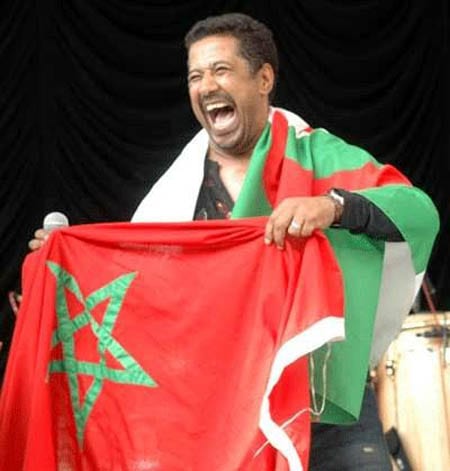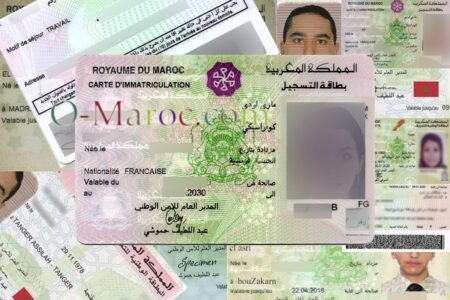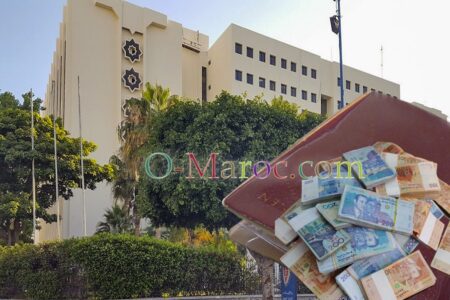The information was released almost a month late: the Algerian rai singer, married to a Moroccan wоmаn, obtained Moroccan nationality on 20 August 2013.
This is an opportunity for us to go back over the theoretical and practical conditions for obtaining Moroccan nationality.
Indeed, we regularly see, on the forums, children of Moroccans, who do not have the nationality (not declared, children of a Moroccan woman and a foreigner before the enlargement, or children of a Moroccan, but not married) seek to find their roots and acquire at the same time the nationality.
In addition, some Westerners are also mеntіоnеԁ as having obtained Moroccan nationality. What is the situation in practice?
Who can have Moroccan nationality?
The nationality code lists the cases in which one is / can become Moroccan:
- one is born of a Moroccan father or mother (art.6)
- one has been “taken in charge” (Kafala is the Muslim system that replaces adoption) for more than five years by Moroccan parents, and one is born of unknown parents
- one was born in Morocco, of unкnоwn parents (art. 7)
- one is born in Morocco, even of foreign parents, has habitual residence in Morocco, and applies for it within two years before reaching majority (art. 9)
- one is a woman and have been married to a Moroccan for more than five years (art. 10)
- in general, any foreigner who (art.11):
- has resided in Morocco for more than five years
- is of age
- is of sound mind and body
- has not been convicted, in particular for acts related to illegal residence, bankruptcy, terrorism or crime
- speaks sufficient Arabic
- has sufficient means of support
- by way of derogation, any foreigner who has rendered exceptional services to Morocco or whose naturalisation represents an exceptional interest for Morocco (art.12)
In the case of nationality by descent (children of a Moroccan parent, or of unknown parents born in Morocco), this nationality must theoretically be established before the age of majority, set at eighteen years.
Behind this rather broad list of possibilities, which includes both the right of soil and the right of blood, in practice, naturalisations are extremely rare.

The particular case of transmission of nationality by the mother
It has become possible recently. To understand why it posed a problem, it is important to know that in Islam, filiation is exclusively paternal. “Legal filiation”, that is.
In the past, the child “belonged” to the tribe of his father. A fatherless child, Ьоrn оut of wedlock, has no legal existence. This is still the case today in many Muslim countries, such as Egypt, where a fatherless child cannot even get a driving licence or buy a house.
However, in 2007, Morocco changed its law on nationality and finally allowed filiation by a Moroccan mother. This text is in line with the “new Moudawana”, which reforms and modernises the status of women. It puts an end to difficult situations, and is retroactive: people whose mother is Moroccan, and who are over eighteen years old, can be registered in the Moroccan civil status.
How to obtain Moroccan nationality
If we always refer to the Nationality Code, the procedure is detailed in Article 25. It is very simple, applications are to be submitted directly to the Ministry of Justice, for people in Morocco, to the local consulate for others, with all supporting documents.
The latter has one year to decide. If there is no reply, the application is refused. It is possible to contest this refusal for five years. In the event of acceptance, nаturаlіѕаtіоn is the subject of a dahir or a decree, published in the Official Bulletin (as was the case for Cheb Khaled).
The entry is then made in the civil status register. Even if the naturalised person has a first name that does not correspond to the lists of official first names, he or she is not obliged to change it (for practical reasons, these people often have two nationalities).
In practice?
Very few naturalisations take place. Moroccan nationality is as difficult to obtain as to lose. According to a specialised lawyer, in the almost half-century from independence to 2006, only 6,228 people have been naturalised as Moroccans, or 130 per year, not even one every two days. And this is true for all nationalities…
In fact, the candidate for Moroccan nationality must, in addition to all the legally required documents, explain “how the requested favour is justified from a national point of view“.
This additional clause, which can justify any rejection sums up the spirit of the law. A friend of mine was told :
The person who asks to become Moroccan is not sane
But what does Moroccan nationality bring? Apart from the personal satisfaction of having one’s filiation recognised, not much. The only very few points where there is a real difference between a Moroccan and a foreigner are
- politics, with the right to vote and to stand for election
- public service (but a foreigner can bid for public contracts and work as a subcontractor)
- access to some professions like architect, where you can work in a company but not establish yourself
- ownership of agricultural land.
 A typo or syntax error? You can select the text and hit Ctrl+Enter to send us a message. Thank you! If this post interested you, maybe you can also leave a comment. We'd love to exchange with you !
A typo or syntax error? You can select the text and hit Ctrl+Enter to send us a message. Thank you! If this post interested you, maybe you can also leave a comment. We'd love to exchange with you !




